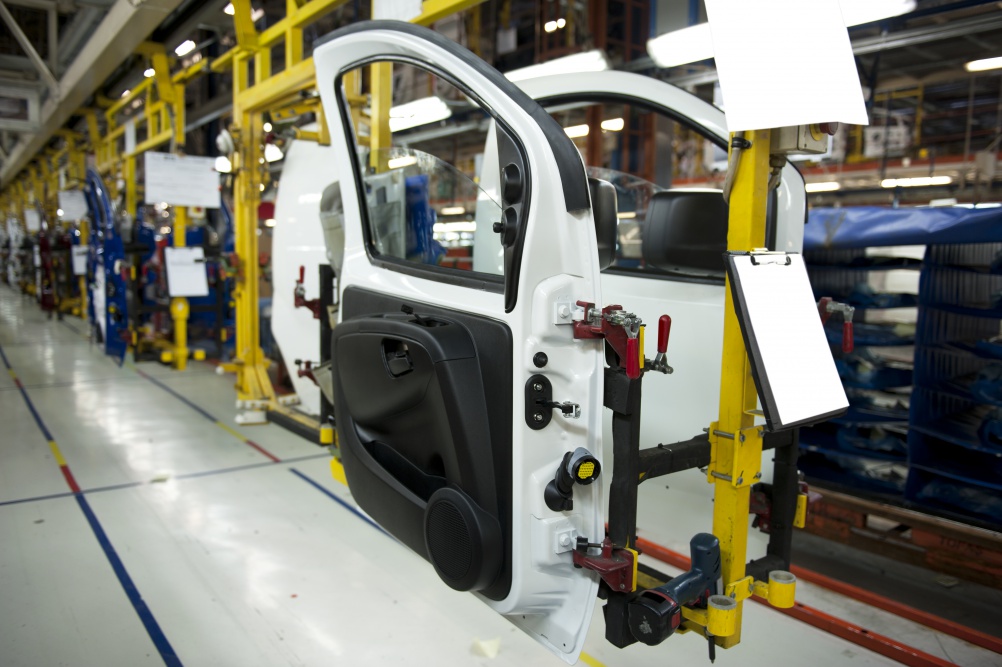Why the UK’s £140bn manufacturing industry needs design
A Design Council event will look at how design can help the country’s manufacturing sector deal with future challenges and opportunities.

The UK’s manufacturing sector is valued at around £140bn, employs 2.6 million people and accounts for half of all UK exports.
But sector experts warn that without using design, UK manufacturing will fail to adapt to global changes. Lee Hopley, chief economist at manufacturers’ organisation EEF says: “If more companies are open to the possibilities of investing in design capabilities, we can be confident about the future of manufacturing and the contribution it can make to the UK economy.”
He adds: “Design skills, recruitment and training can be the fuel that drives the manufacturing engine.”
This week, the Design Council’s annual Leading Business by Design Summit will bring together manufacturing and design organisations, including Rolls-Royce, Volvo and Dyson, to discuss how design can help build the future of manufacturing.
Why is manufacturing so important?
Manufacturing is one of the UK’s key economic sectors. Industry title The Manufacturer puts the sector’s value at £140bn, while research from EEF says manufacturing accounts for 11 per cent of total UK GVA. The sector employs 2.6 million people and this figure is rising.
Manufacturing may not have traditionally been seen as a sector which invests heavily in design, but the Design Council argues that this is changing. Design Council chief executive John Mathers says: “Evidence suggests the value of design is becoming increasingly recognised, even in industries you would not normally associate design with.”
EEF’s Hopley says that across the manufacturing sector “design isn’t a ‘bolt on’ or a ‘nice to have’ – it is becoming integral to producing goods and services that meet regulatory requirements, enhance user experience, capture the benefits of new technologies and differentiate businesses.”
Where are the opportunities for design?
The Design Council has identified three manufacturing areas which it suggests would benefit greatly from using design – automotive, aerospace and high-value manufacturing.
In automotive design it says design’s role in the industry “has progressively moved from sculpting pure form (‘styling’) to connecting technology to consumers’ needs and desires”.
It adds: “more recently, the appearance, use and significance of cars has begun to be profoundly affected by changes in the wider automotive ecosystem, including: the introduction of increasingly intelligent vehicles, decreasing car ownership in urban areas, rising environmental standards and the entry of new companies.”
Aerospace, the Design Council points out, is “rightly one of the most heavily regulated and scrutinised of all industries”. However, it is also “an industry where rewards for successful design are high and new technologies and materials are pushing the art of the possible”.
What are the challenges?
In its report on design in high-value manufacturing, the Design Council says it found that “businesses invest in design in response to emerging technologies and when faced with regulatory constraints”.
The Design Council points to the “imminent” Fourth Industrial Revolution (based on a growth of the Internet of Things) as both an opportunity and threat for manufacturing. It says that “incorporating design earlier and more deeply into the manufacturing sector will futureproof the sector [ahead of this change].”
The Design Council also identifies challenges in opportunities to use design in manufacturing – focusing on a “growing” skills gap, a need for more effective multidisciplinary collaboration and a pressure to be more forward-thinking when developing future talent.
Paul Priestman, co-founder of consultancy PriestmanGoode, says: “Rapid developments in science, technology and materials are changing the way products are designed and manufactured.
“It’s crucial that British manufacturing has the skills and interdisciplinary framework to adapt. Changes in the broader manufacturing ecosystem mean designers increasingly need to develop a wider skillset.”
The Design Council’s Leading Business by Design Summit takes place in Birmingham on 18 June. For more information visit www.designcouncil.org.uk/events/leading-business-design-summit.
-
Post a comment




